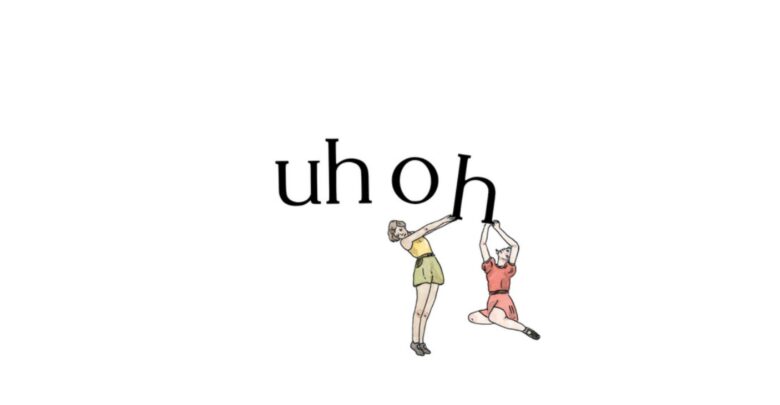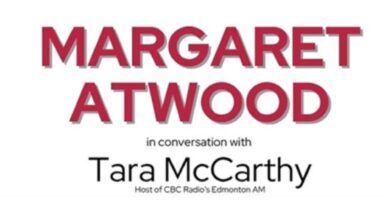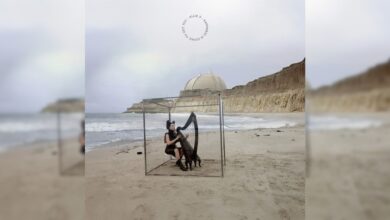Album Review: ‘Uh Oh’ by Patrick Watson
Quebecois film composer and singer-songwriter Patrick Watson just released his eighth album, Uh Oh.
 Supplied
SuppliedMontreal, Quebec, singer-songwriter and film composer, Patrick Watson, has released his eighth studio album, Uh Oh. A deeply personal 11-track collection that examines life’s moments of uncertainty and surprise. Or, as Watson calls them, “uh ohs.”
Written during a period when Watson lost his voice due to a vocal cord hemorrhage and paralysis, the album captures the artist’s confrontation with silence and vulnerability. Unable to sing for several months, he collaborated with friends and fellow musicians to complete the project. He allowed others to give voice to his songs.
The album opens with “Silencio,” featuring November Ultra. The track reflects the fear and grief Watson experienced when he was unsure if he would ever sing again. “I lost my voice ’cause I talked too loud,” he sings. A nod to the injury that forced him into quiet introspection.
“Peter and the Wolf” draws inspiration from the classic tale but reimagines it with a haunting, Southern Gothic tone. Told from the perspective of Peter, the track evokes the eerie feeling of being followed by one’s own anxieties, represented by the wolf.
On “The Wandering,” featuring MARO, Watson captures the unease of not knowing where life is headed. “Don’t know where we’re going, don’t know where we’ve been,” he sings. He’s expressing a universal sense of disorientation and restlessness.
“Choir in the Wires” paints a sonic portrait of Mexico City, inspired by the hum of conversations and energy running through the city’s tangled web of overhead wires.
The title track, “Uh Oh,” featuring Charlotte Oleena, explores the duality of anxiety and hope. “I’m a mess, but I’m the best,” Watson sings, juxtaposing self-doubt with optimism. “Uh oh, the future’s so bright, you better put your sunglasses on tonight,” offers a wry, uplifting counterpoint.
“The Lonely Lights,” featuring La Force, captures the ache of separation and the quiet pain of leaving someone behind. The following track, “Ami imaginaire,” with Klô Pelgag, revisits childhood innocence through the lens of an imaginary friend.
The brief “Postcards,” featuring Hohnen Ford, reflects on enduring friendship and the emotional distance that time can bring. “House on Fire,” with Martha Wainwright, confronts the wreckage of betrayal and conflict, using the burning house as a symbol for fractured relationships.
On “Gordon in the Willows,” featuring Charlotte Cardin, Watson returns to themes of love, hope and perseverance. The album closes with “Ça va,” featuring Solann, a French-language track that embraces imperfection. Watson left in lyrical mistakes to preserve the song’s honesty, a decision that mirrors the album’s core message of acceptance.
With Uh Oh, Patrick Watson transforms a period of silence and uncertainty into an exploration of human resilience. It’s a record that turns loss into connection and vulnerability into art.
I found the album deeply moving because it captures the unpredictable rhythm of life, the highs, the lows, and the moments in between that often go unnoticed. As a student with perfectionist tendencies, life often feels like a constant balancing act of ambition, self-doubt, and change, and Uh Oh resonated with that turbulence. Watson’s willingness to sit with uncertainty and turn discomfort into creativity felt incredibly grounding.
The acoustics throughout the album are intimate and organic, giving the sense that each song was recorded in the quiet corners of a lived-in space. Soft piano melodies, distant echoes, and delicate strings blend with layered vocals to create an atmosphere that feels both fragile and full. The subtle use of reverb makes listeners feel enveloped in the same emotional space Watson inhabited while writing these songs.
Listening to tracks like “The Wandering” and “Uh Oh,” I was reminded that confusion and growth often co-exist, and that there is something beautiful about not always having the answers. The album does not try to resolve every emotion. Instead, it lingers in them, offering comfort in the idea that imperfection is part of being human.
Overall, Uh Oh is a heartfelt and beautifully imperfect meditation on finding light in life’s unexpected moments. Its raw acoustics and thoughtful instrumentation make it an emotional journey that stays with you. And it quietly reminds you that it is okay to stumble, pause, and begin again.




